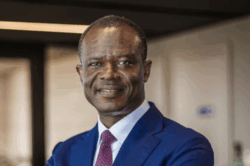“The goat thought it was dirtying its owner’s wall until it realised it was tearing off its own skin.” – Akan proverb
Life can be very tough and discouraging. It can drag to the point where aspirations begin to look impossible. But we cannot let that stop us from focusing on what is important; which is to live life meaningfully. The rise in scandals and crimes tells us that the world is sorely in need of heroes. Eccentrically, this necessity has not tickled us to create more heroes. Instead, we have been making fanatical efforts to celebrate how weak we all are, and how our weaknesses lead us into trouble.
What we do not realise is that by this crusade we are excusing ourselves from becoming the best that we are capable of being. It is obvious weakness is a feature of our humanness – but when we start dwelling on it, glorifying it as the source of our stunted growth, the alarm bells should sound. It should tell us that there is something very wrong with our societal structures and values.
And, in our age, it reflects the shortage of inspiring heroes. Why else would we want our leaders to be weak, to be just like us? Will they not always attribute their failings to their weakness? More importantly, when we excuse the weakness our leaders, what do we expect the citizens to do? They will behave anyhow and point fingers at the system.
In any society where leaders are allowed to fall short of the ideal, it follows that citizens will avoid sacrifices at all costs. Like the adage ‘misery seeks company’, we are accustomed to reading weakness into people because it suits us better. A glorification of weakness entreats us to be weak. It is true nobody is perfect, but it is about time our preference for weakness was brought to a halt. We have to take that course of action, because for life to be meaningful we have to rise above our weaknesses; we have to make sacrifices. This is where the call for heroism comes into play. We need to engineer conversations about heroes/heroines and heroism.
Just as we are all weak in one way or aother, similarly, we have strengths in one area or another of life. This makes it imperative that we all discover our strengths and use them to make our communities and societies better. For some among us, we are holding back on becoming heroes simply because we do not hear conversations about heroism. For others, the ingredients of heroisms sound so unfamiliar to us we would rather bask in what we are used to rather than venture into an untried arena.
But truth be told, the decay in our society presents an opportunity for all of us to be heroes. It calls for us to aspire to be better than we are. It calls for us to seek examples of people who have done things at one time or another that inspire the rest of us; and if we cannot find any, to become those individuals. It calls for us to trace the paths, whether of solutions or of faith, that will translate idealism into reality. And that striving will catapult us into the world of heroism.
Heroism is about setting ideal examples. It entails making sacrifices that will better the lot of society. It is about lighting up a world in the midst of vast darkness. It reveals to us that no matter the quantum of suffering that exists, there is hope for individuals to do the right thing – even when most other people are not. Heroism is about letting your light shine. That is what inspires others to imitate their actions, stirring up sincere desires for everyday people to keep their eyes on the heroic examples as their benchmarks.
Oftentimes, some among us do not aspire to heroism because of the notion that heroes and heroines are paragons of morality. That is not necessarily true. Yes, the ideal heroes depict such traits; but, more importantly, they exhibit superb competencies directed toward the goal of solving society’s most troublesome problems. They make solemn vows to themselves to improve the lot of society with their talents and skills and time. They respond to calls that others shy away from, as their service to humanity. They seek the good of all, so that all of us might be good. This is an example we can all follow.
The call for heroes and heroines rests on the fact that we all contribute in one way or another to make our society better. Not all of us will have the strength of arm to undertake ‘publicised’ actions. Nevertheless, we can act heroically if we contribute to a new, positive way of thinking about life and talking about how to live meaningfully. It does not have to be a major message. It can be our everyday conversations which tell people everything they need to know about being human and humane. If we cannot act heroically, we can inspire others to become heroes and heroines. That way we will all be the heroes we need…
Comments, suggestions and requests should be sent to the author at [email protected]










